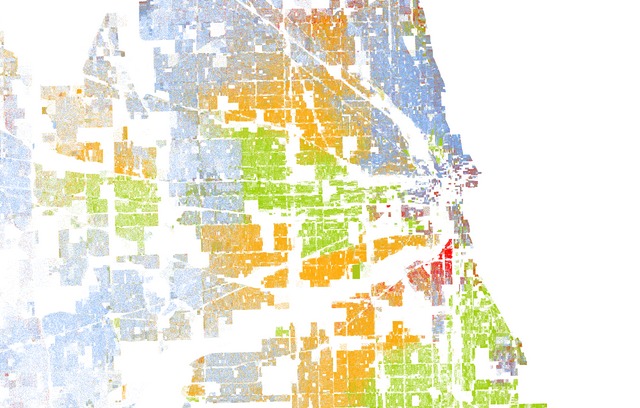Chicago Still Claims Dubious Honor Of Most Segregated City In The U.S.
By Rachel Cromidas in News on May 7, 2015 4:30PM
Chicago is one of the most racially-diverse cities in the country, but it's also the most segregated, according to an analysis of data from Brown University that bolsters an uncomfortable theory we sadly already knew.
Famous statistician and one-time Hyde Parker Nate Silver crunched the numbers, based on the 2010 census, to determine which of America's 100 most populous cities would earn the dubious distinction of being the most racially-segregated. Chicago—with its predominantly-black South and West Sides, Latino Northwest and Southwest Sides, white North Side and Asian neighborhood pockets—topped the list.
While Chicago's racial-diversity ranks it 7th on Silver's list of most diverse cities, the city falls predictably short when it comes to having that diversity spread out across its neighborhoods. Atlanta, Milwaukee, Philadelphia and St. Louis are right behind us on the list as the top five most segregated cities.
"As the numbers show, they are segregated because they underachieve their potential to have racially diverse neighborhoods," Silver writes.
Not much has changed since Silver was a student at the University of Chicago in the mid '90s and acutely aware that Hyde Park was a bubble of affluence and whiteness compared to the South Side communities directly surrounding it. While Hyde Park appears to have mostly white and Asian residents in a new interactive map of residency patterns broken down by race in Chicago and elsewhere, nearby Washington Park is 97 percent black and Woodlawn is 87 percent black.
Hyde Park, Washington Park and Woodlawn represent one of countless examples of the stark racial lines dividing Chicago.
Last winter, the Chicago Reader called this entrenched segregation Chicago's favorite problem to ignore, given how rarely it was discussed during the most recent municipal elections. One main culprit could be an unchallenged culture of housing discrimination that is "still rampant" today.
Segregation's negative effects on cities go beyond preventing struggling families from receiving adequate services;it's a problem for everyone. Segregation can inhibit the spread of ideas and innovation, perpetuate poverty and its damaging effects, lower the overall quality of urban life and drive the wealthiest residents to decamp to the suburbs.
Chicago has seen these problems and more for decades, but there are few big-picture solutions in sight.
